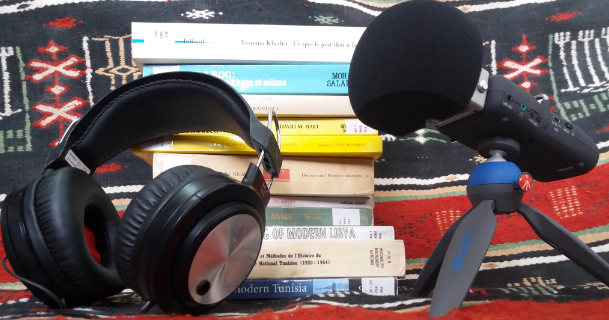
58.7K
Downloads
209
Episodes
Maghrib in Past & Present | Podcasts is a forum in which artists, writers, and scholars from North Africa, the United States, and beyond can present their ongoing and innovative research on and in the Maghrib. The podcasts are based on lectures, live performances, book talks, and interviews across the region. Aiming to project the scientific and cultural dynamism of research in and on North Africa into the classroom, we too hope to reach a wider audience across the globe.
Episodes

Wednesday Jul 10, 2024
Activating Ruins and Performing Power in Colonial Carthage
Wednesday Jul 10, 2024
Wednesday Jul 10, 2024
Episode 184: Activating Ruins and Performing Power in Colonial Carthage
In the decades leading up to, and during, the French Protectorate (1881–1956), the excavation of ruins became a critical component of a colonialist modernizing practice that saw North Africa’s ancient imperial and early Christian pasts as tangible justification for European dominance. Sites were not only unearthed, but their ruins were consolidated, restored, activated, and fabricated as backdrops for highly staged and politically significant events, and thus the enactment of France’s “civilizing mission.”
This conversation considers several case studies that illustrate the exploitation of ruins in the operation of the colonialist imagination and power relationships. Based on archival and on-site research, it explores the use of Carthage’s Roman theatre by the Carthage Institute for a series of drama festivals in the early 1900s, as well as the Catholic Church’s 1930 International Eucharistic Congress, elements of which were scattered across the ruin-rich city’s many sites. These events, which aimed to add legitimacy to the French and Catholic presence by emphasizing continuity and revival, involved excavation and restoration work, as well as the participation of set designers and artists who took considerable liberties in their contributions to the events’ mélange of site-specific history and ephemeral fantasy. Together these cases illuminate the intersection of archaeology, politics, and architecture, as well as the academy, the colonialist Church and state, and several creative fields in bringing ruins from the orientalist imagination to the real world of French-occupied Tunisia.
Daniel E. Coslett is an assistant professor of architectural history at Drexel University (Philadelphia, USA) and was a 2005–06 Fulbright student researcher in Tunisia. A scholar of colonial and postcolonial built environments in North Africa and the wider Mediterranean region, his work addresses intersections of architecture, heritage, archaeology, and tourism. Coslett has published several edited volumes and book chapters on colonial architecture, global built environments, and heritage, as well as articles in publications including the Journal of North African Studies, the International Journal of Islamic Architecture, and Public Historian. He is an active member of the Society of Architectural Historians and an assistant editor for the International Journal of Islamic Architecture.
This episode was recorded on the 3rd of august, 2023 by the Centre d'Études Maghrébines à Tunis (CEMAT).
Posted by Hayet Lansari, Librarian, Outreach Coordinator, Content Curator (CEMA).

No comments yet. Be the first to say something!